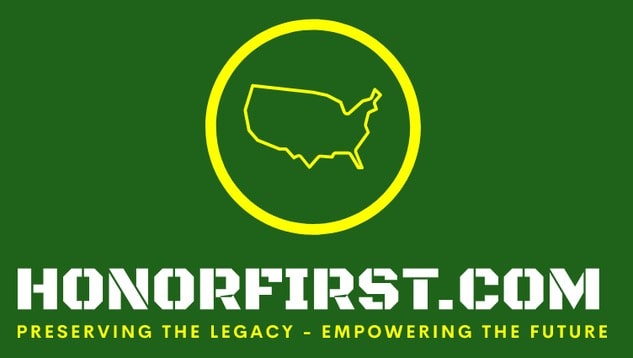November 5 - November 11INTROGood morning! Welcome to another This Week in USBP History! Honor First Bridging the Interpretive Gap Introduction The motto "Honor First" has long stood as the cornerstone of the United States Border Patrol's ethos, encapsulating a commitment to integrity, honesty, and unwavering adherence to ethical principles. However, its application can unveil a nuanced landscape, especially when faced with real-world scenarios that challenge conventional norms of authority and regulations. In last week's blog on whistleblowing within the Border Patrol, we touched upon the essence of "Honor First". The discourse that followed, enriched by readers' feedback, hinted at interpretive challenges the motto may encounter within the operational framework of the Border Patrol. This narrative seeks to delve deeper into "Honor First", examining its interpretive breadth and alignment with actions taken under the guise of honor, especially when those actions traverse the boundaries of established authority and regulations. Through this lens, we aim to foster a clearer understanding of "Honor First" within the Border Patrol, and envision how a shared interpretation of this motto can further instill a culture of accountability and uphold the true spirit of honor that underpins the Border Patrol's mission. Historical Context of "Honor First" The motto "Honor First" has been integral to the U.S. Border Patrol since around 1926, originating in the El Paso District. It encapsulated a commitment to integrity and duty among early Border Patrol Inspectors. Officially trademarked by the Border Patrol on August 17, 2010, "Honor First" continues to symbolize the agency's dedication to upholding law and maintaining high ethical standards, forming a backdrop against which the interpretive challenges and varied understanding of the motto can be explored in modern-day operations. The Interpretive Challenge The motto "Honor First" sets a high standard of integrity and ethical conduct within the Border Patrol. However, its interpretation can be complex in real-world scenarios. For instance, an agent mandated to stay in a less active area may feel the honorable action is to move to a busier area to apprehend more individuals crossing the border illegally. Similarly, leaders might face dilemmas when the honorable action, as perceived, clashes with established regulations, like in cases of promotions or procurement. Moreover, there's a challenge when individuals broaden or narrow definitions of laws and regulations to align with what they believe is the honorable course of action, such as in cases of Home-to-Work vehicle usage. The lack of a universally accepted definition of "Honor First" could contribute to these interpretive challenges, where individuals act based on personal interpretations of honor, potentially leading to actions diverging from established authority or regulations. These scenarios underscore the need for a clear, shared understanding of "Honor First" to ensure alignment between individual actions and organizational expectations, fostering a culture of accountability and adherence to the law. Implications and Pathways Towards a Shared Understanding The interpretive challenges surrounding "Honor First" have significant implications on whistleblowing and accountability within the Border Patrol. Without a clear, shared understanding of "Honor First", individuals may act on personal interpretations, potentially leading to actions that diverge from established authority or regulations. Whistleblowing, in this context, could serve as a mechanism for individuals to voice concerns over actions they perceive as contrary to the principles of "Honor First" or established regulations, promoting a culture of accountability. A pivotal challenge lies in the lap of leadership to define "Honor First" clearly and provide open communication and clarity to the workforce. A well-articulated definition from leadership can help in aligning individual and organizational interpretations of "Honor First", thereby promoting a culture of adherence to established authority and regulations. It's important to clarify that advocating for a shared understanding of "Honor First" is not a call for blind followership, but rather a call for a well-informed, shared ethos that guides decision-making and actions within the Border Patrol. Moving towards a shared understanding of "Honor First" is crucial. Educational initiatives and training programs could play a pivotal role in fostering this shared understanding, helping to mitigate instances of well-intentioned but rule-bending or rule-breaking actions. Additionally, policy recommendations and strategies could be explored to reinforce the "Honor First" motto, ensuring it continues to guide the Border Patrol’s dedication to truth, justice, and organizational integrity. Engaging in discussions, revisiting and clarifying the motto, and promoting a culture of open communication can help bridge the interpretive gap surrounding "Honor First", ensuring that it remains a beacon of integrity and professionalism within the Border Patrol. 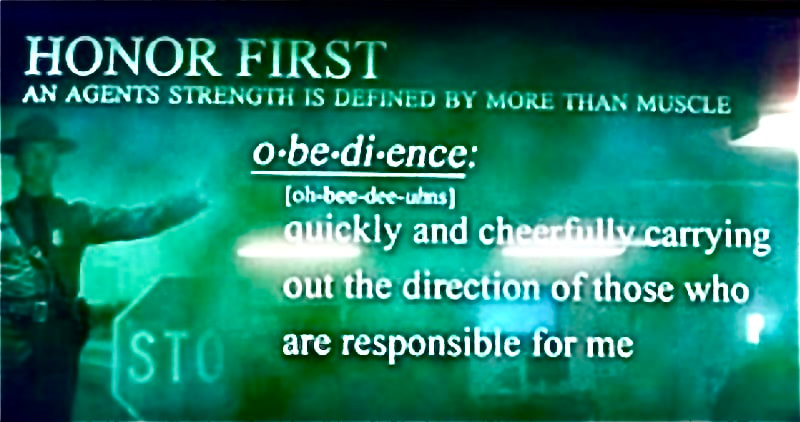 Reflecting on a past chapter from the IDS system, this slide aimed to underscore the value of compliance within the ranks. However, it was met with a wave of sarcasm from agents coining the phrase "Obedience First." This echoes the delicate balance between compliance and the principle of "Honor First," a continuous narrative that shapes our understanding of duty, accountability, and professionalism in the Border Patrol. Conclusion The motto "Honor First" is a cornerstone of the United States Border Patrol's legacy, embodying integrity and duty. However, varied interpretations can lead to actions diverging from established norms. It's a leadership challenge to foster a shared understanding of "Honor First", which in turn, enhances organizational pride and employee morale. A clear, shared ethos not only aligns individual actions with organizational goals but also cultivates a culture of accountability and openness. By addressing the interpretive challenges surrounding "Honor First" and promoting a shared understanding, the Border Patrol can continue to uphold its esteemed legacy of integrity and excellence in service to the nation. This week on "This Week in USBP History," we unearth the foundational layers of the Border Patrol's storied past. Starting in 1918, we highlight Frank Berkshire's seminal proposal that set in motion the Border Patrol's formation. We then proudly stride alongside the Border Patrol agents of 1924 as they showcased their new uniforms in El Paso's Armistice Day Parade, riding high on horses borrowed from the Seventh Cavalry. By 1931, we pay tribute to the remarkable Jeff Milton, an embodiment of dedication, marking his service transition. The journey continues through 1940 with strategic expansions and culminates in 1998, as the Border Patrol solidifies its identity through the standardization of its symbols and uniform decorum. These moments and many more paint the rich tapestry of bravery and service that defines the Border Patrol. There are no Newton-Azrak Award action anniversaries this week. However, some Newton-Azrak Award recipients do not have a date associated with their actions. Such is the case with Senior Patrol Agent Theo D. Hudson, who is highlighted this week. During this week, we solemnly remember two of our fallen on the anniversaries of their deaths: Border Patrol Agent John Charles Gigax who tragically lost his life in an automobile accident on November 7, 1999, and Supervisory Border Patrol Agent Anibal A. Perez who was declared to have fallen in the line of duty on November 5, 2021. While some, like Patrol Inspector Garvis Field Harrell and Agent Gigax, lack official recognition from the Customs and Border Protection or the U.S. Border Patrol, HonorFirst.com respectfully acknowledges and honors their sacrifices alongside those of Border Patrol Pilot Howard H. Gay. Our heartfelt remembrance extends to all who have valiantly served and faced the ultimate sacrifice. Enjoy and have a great week! Cliff P.S. - As an open and continuous invitation to current and former USBP employees, I am always accepting photos to post in the USBP Photo Galleries and in the Upholding Honor First pages. I sure would appreciate you visiting those pages and sending me anything that you think I could post (just send them to [email protected]). As always, make sure to explore all of the hyperlinks to the documents and pages. Finally, please forward this blog to whomever you think may enjoy it. ESPRIT DE CORPSThe workplace climate resulting from a combination of organizational pride and employee morale.
Esprit de corps is reinforced through the shared goals, mission and values of the organization and its employees. The definition turns Esprit de Corps into a simple formula and defines parts that comprise organizational pride and employee morale. Esprit de Corps = Organizational Pride + Employee Morale Esprit de Corps is the key to a healthy organization and engaged employees. Honor First is foundational to the Border Patrol's organizational pride and integral to its Esprit de Corps. THROWBACK PHOTO OF THE WEEKDawn's Early Light A Piper's Prelude As the first rays of sunlight heralded the start of a new day, a Border Patrol bagpiper perched atop a patrol horse captured a moment of tranquility before the change-of-command ceremony for Chief Patrol Agent Jeffrey Calhoon. This early morning tableau, set against the quiet promise of dawn, speaks to the solemn anticipation of the day's event, with traditions old and new waiting to greet the horizon. DOCUMENTS AND EVENTS1918
1924
1931
1940
1998
NEWTON-AZRAK AWARD ACTION ANNIVERSARIESFollow this link to see examples of USBP employees Upholding Honor First.
There are no Newton-Azrak Award action anniversaries this week. However, some Newton-Azrak Award recipients do not have a date associated with their actions. Such is the case with Senior Patrol Agent Theo D. Hudson, who is highlighted this week. 1992 Theo D. Hudson Senior Patrol Agent Tucson Sector Senior Patrol Agent Theo D. Hudson designed and developed a “situation board” for tracking and documenting narcotic and undocumented alien entries into the United States. This system has been directly linked to the detection of three major air smuggling routes through southeastern Arizona, the seizure of numerous tons of marijuana, and the apprehension of hundreds of undocumented aliens and their smugglers. U.S. BORDER PATROL FALLEN ANNIVERSARIESAs of March 6, 2023 the U.S. Border Patrol has suffered 156* fallen. Titles
The following names hold a distinguished position, as they have made the ultimate sacrifice in their unwavering commitment to uphold the oath each officer took to protect and defend the United States of America. The facts concerning each officer are presented with minimal editing to preserve the "language of the day" found in the original reports, providing readers with a sense of historical context. In compliance with the Privacy Act of 1974, the cause of death for employees who lost their lives in the line of duty due to exposure to lethal illnesses will not be disclosed. * Please note that although the circumstances surrounding their deaths met the criteria for Line-of-Duty Deaths at the time, Patrol Inspector Garvis Field Harrell and Border Patrol Agent John Charles Gigax are not officially recognized as fallen by either the Customs and Border Protection or the U.S. Border Patrol. Additionally, despite Border Patrol Pilot Howard H. Gay losing his life in the action that earned him the Newton-Azrak Award, his death is not officially recognized either. Nonetheless, HonorFirst.com respectfully recognizes and includes Inspector Harrell and Agent Gigax among those honored as having fallen in the line of duty. 1999 John Charles Gigax Date of Birth: June 1, 1972 Entered on Duty: March 17, 1997 Title: Border Patrol Agent End of Watch: November 7, 1999 Details: Border Patrol Agent John Gigax was killed in an automobile crash while he was travelling from a temporary assignment in Washington, DC. Agent Gigax, who was stationed in Laredo, Texas, was driving on I-95, near Doswell, when his department Jeep Cherokee veered off the road and struck the rear of a car carrier parked on the shoulder in Hanover County, Virginia. The Jeep's momentum caused it go over the cab of truck, landing head-first on the pavement. The Jeep broke apart upon impact with the ground, killing Agent Gigax instantly. Agent Gigax had served with the United States Border Patrol for three years. He was survived by his wife and parents. Gravesite 2021 Anibal A. Perez Entered on Duty: June 26, 2006 Title: Supervisory Border Patrol Agent End of Watch: November 5, 2021 Details: Agent Perez entered on duty on June 26, 2006, as part of the 625th Session of the Border Patrol Academy. At the time of his passing, he was assigned to the Ajo Station in the Tucson Sector, Arizona. The circumstances of his passing were reviewed by an executive panel and the CBP Commissioner who determined that this death occurred in the line of duty. He is survived by his wife Fawna; children: Isabella, Andre, and Milan; parents: Anibal and Dora; and sister: Tara. Cremated
Comments
|
Clifford GillBlog author, retired U.S. Border Patrol Assistant Chief and, current U.S. Border Patrol employee advocate. Ray HarrisSite founder and owner, former Supervisory Border Patrol Agent and retired Immigration Special Agent. Joseph BancoU.S. Border Patrol historian and retired Deputy Chief Patrol Agent. Archives
July 2024
I prefer that you leave comments. However, if you wish to contact me, please do so by emailing [email protected].
|
- Home
-
For USBP Applicants
-
USBP Pages and Links
- Firearms Qualification Course
- Military Time Buy Back
- Station MWRs
- Transitioning Out of the USBP
- Fast & Furious
- U.S. Border Patrol Fallen >
- Honor First and Esprit de Corps
- USBP Photo Galleries
- U.S. Border Patrol History >
- U.S. Border Patrol Honorary Awards
- Upholding Honor First >
- U.S. Border Patrol Authorized Devices
- Border Patrol Stories
- What's Important Now - Academy Podcast
- Badges
- Veterans
- Tips for the Media
- Links
- Acronyms
- Border Patrol Locations
- Sector/Station FaceBook Pages
- Ten Codes
- Online Forums
- Search
- Home
-
For USBP Applicants
-
USBP Pages and Links
- Firearms Qualification Course
- Military Time Buy Back
- Station MWRs
- Transitioning Out of the USBP
- Fast & Furious
- U.S. Border Patrol Fallen >
- Honor First and Esprit de Corps
- USBP Photo Galleries
- U.S. Border Patrol History >
- U.S. Border Patrol Honorary Awards
- Upholding Honor First >
- U.S. Border Patrol Authorized Devices
- Border Patrol Stories
- What's Important Now - Academy Podcast
- Badges
- Veterans
- Tips for the Media
- Links
- Acronyms
- Border Patrol Locations
- Sector/Station FaceBook Pages
- Ten Codes
- Online Forums
- Search
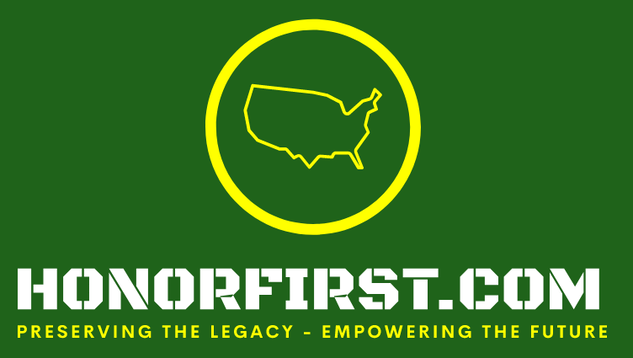

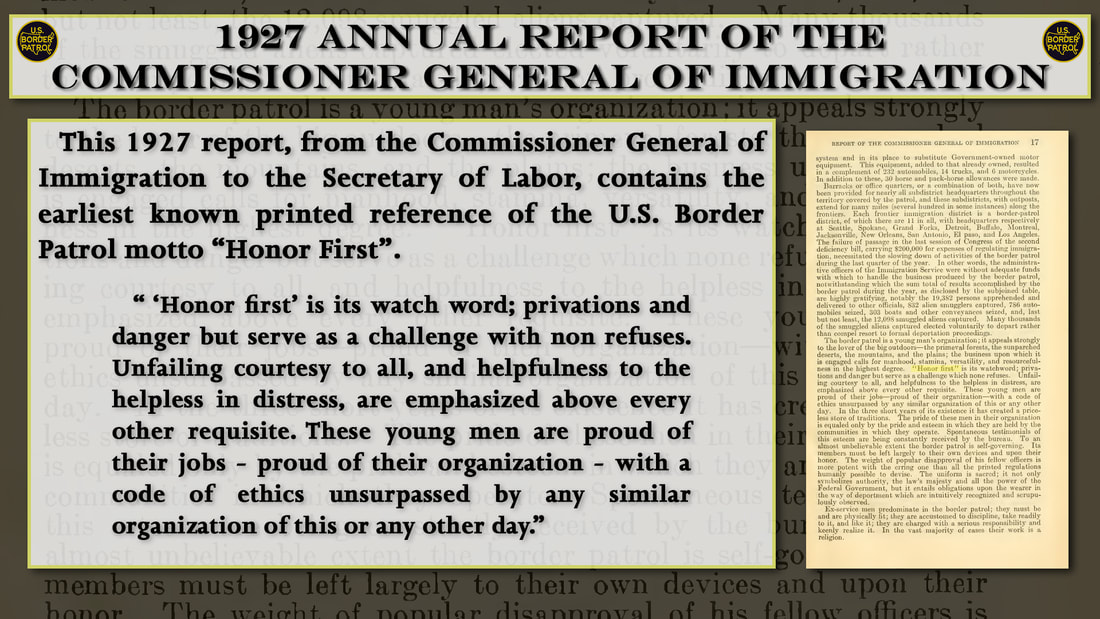

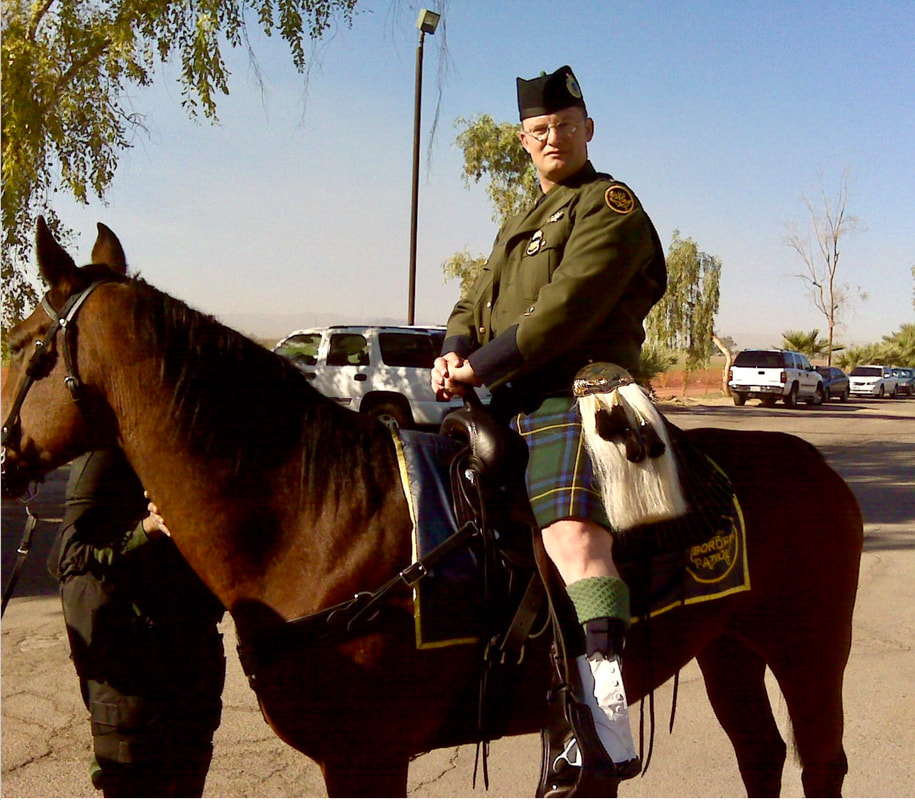
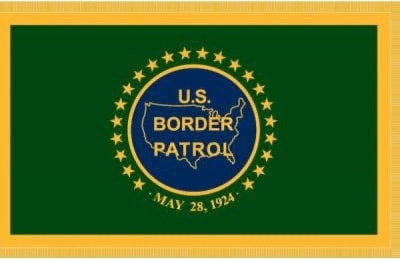
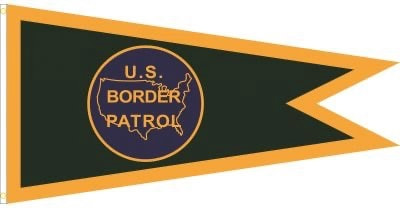
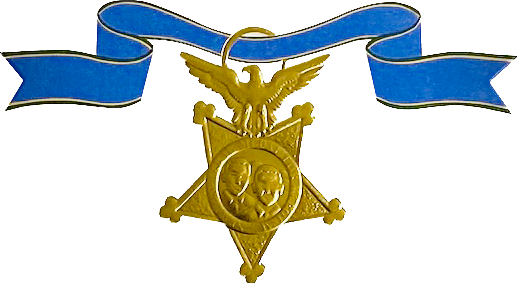
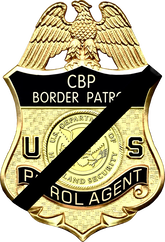
 RSS Feed
RSS Feed
